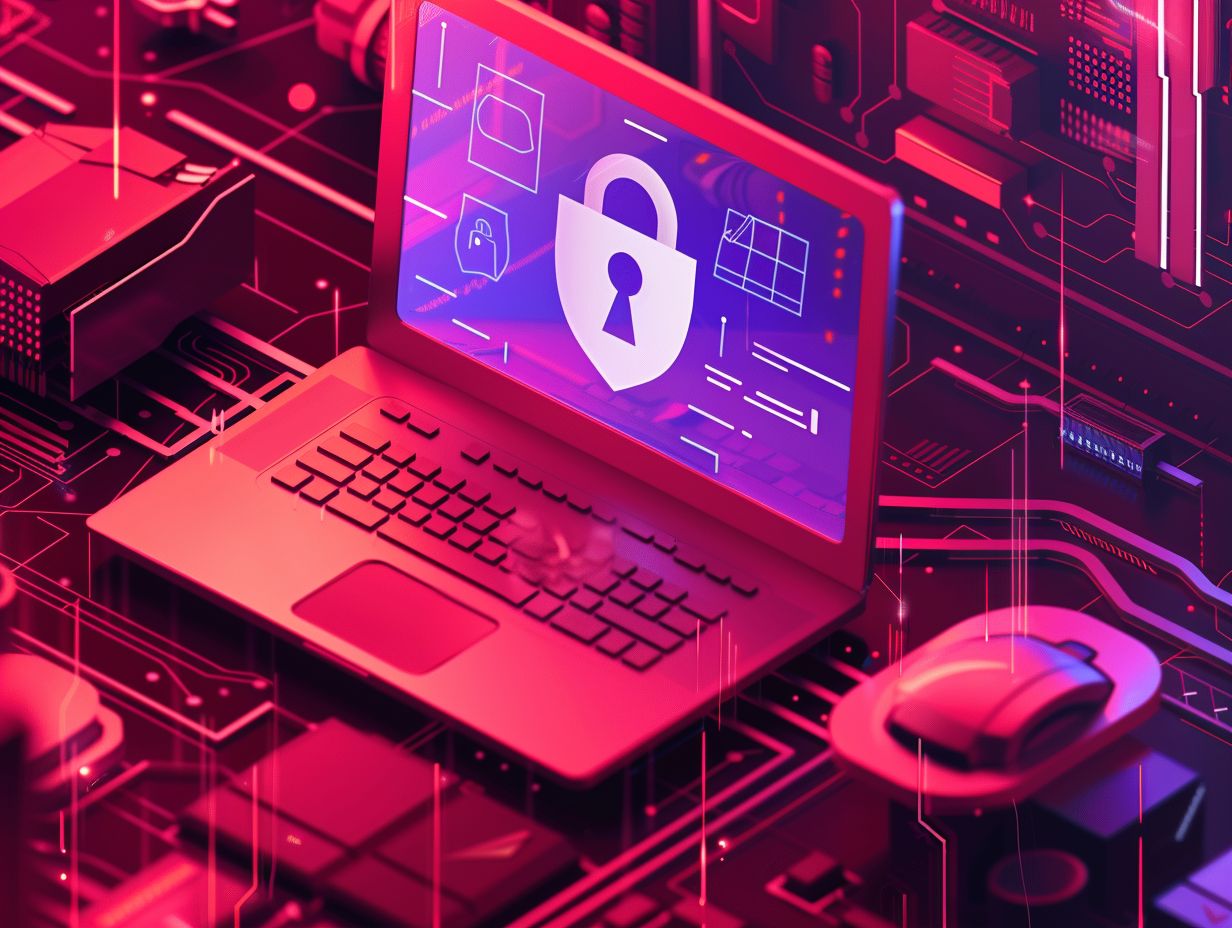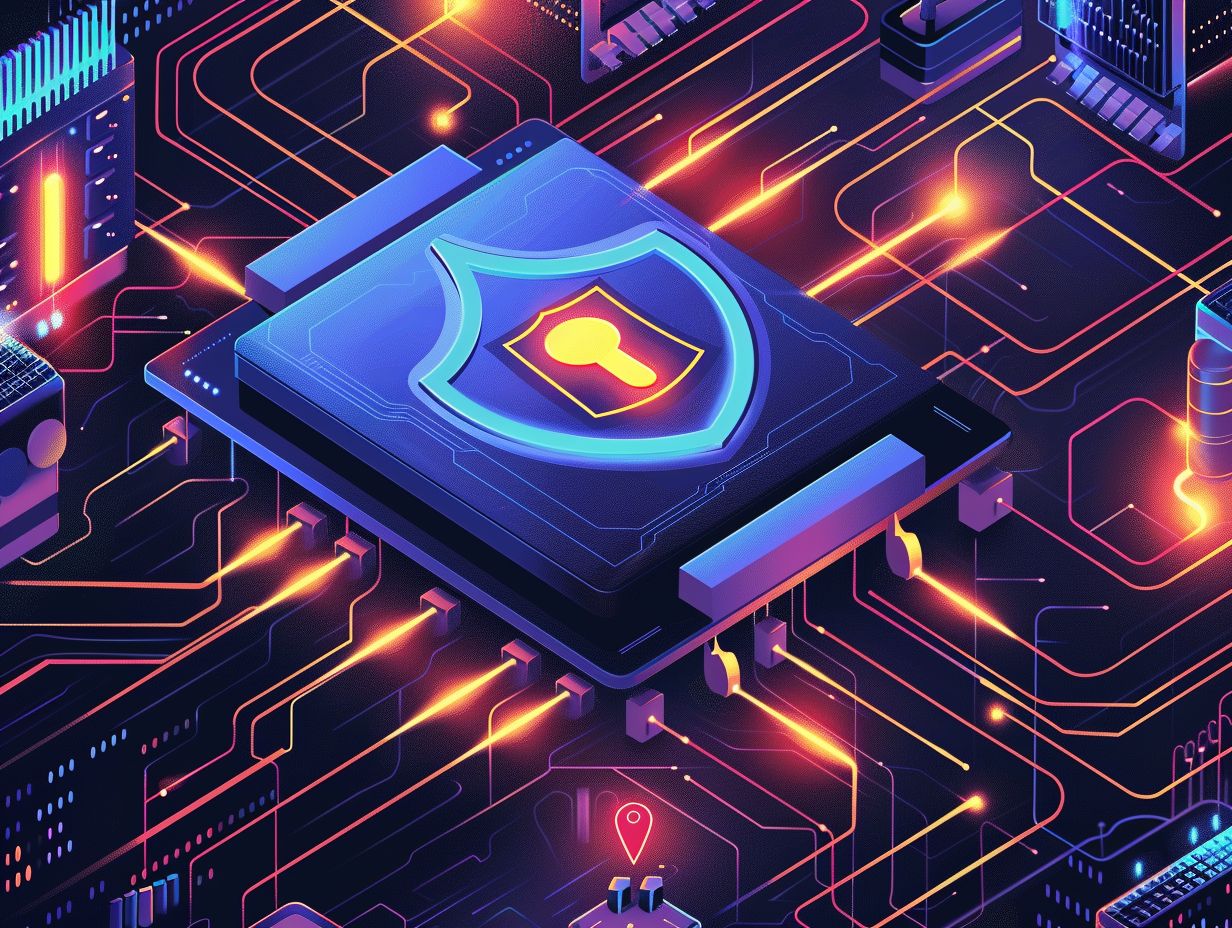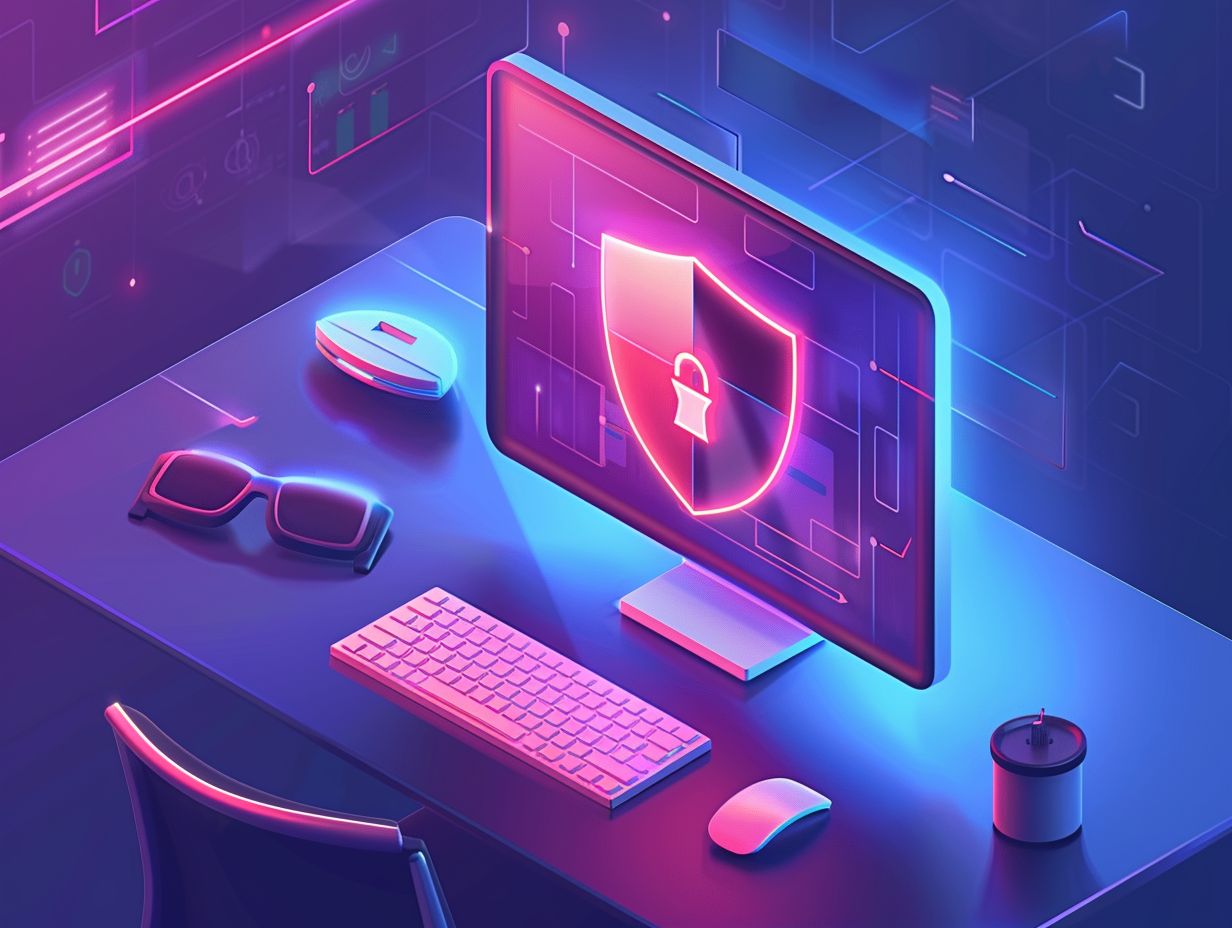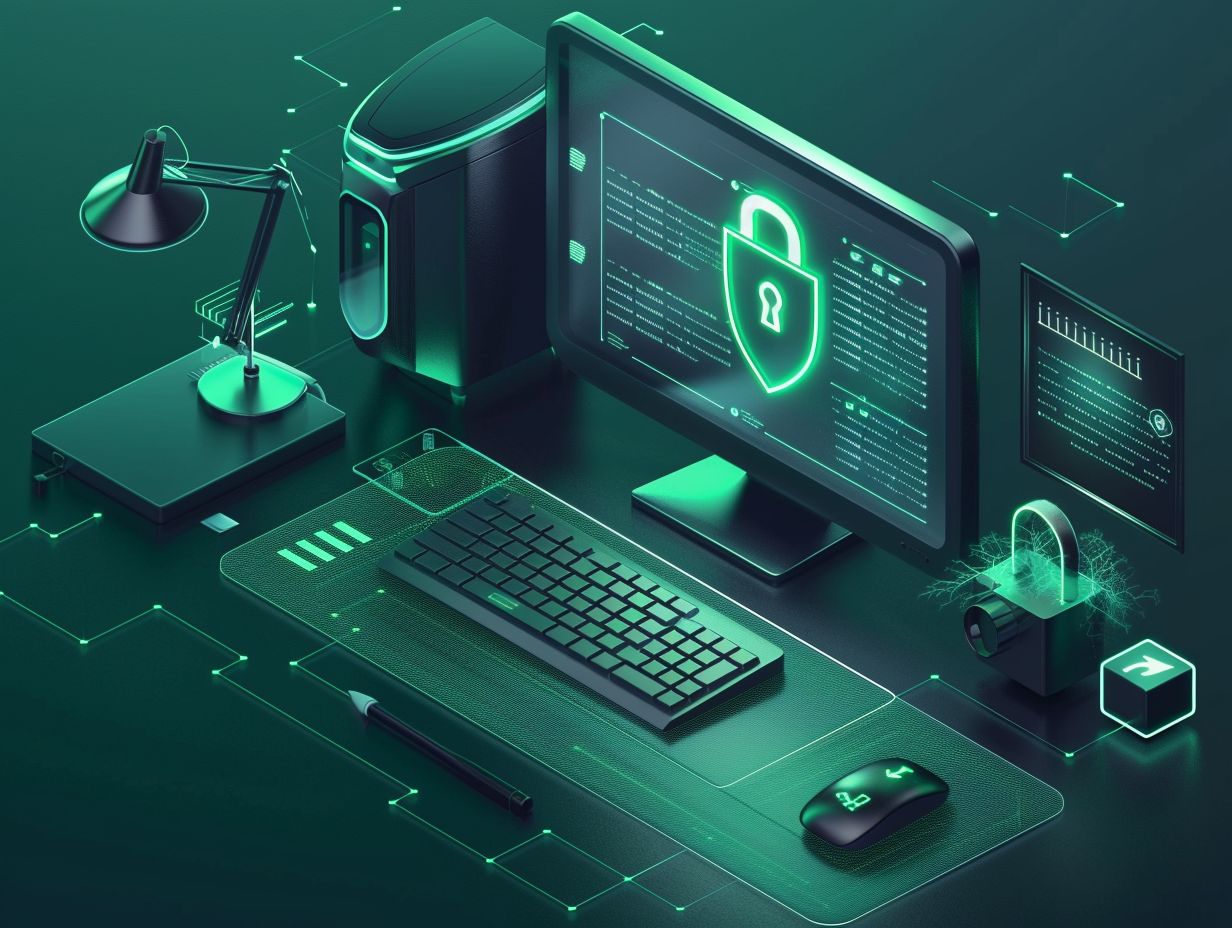In today’s digital age, cybersecurity is more important than ever, especially in online technical education platforms. You need to explore the risks and consequences of cyber attacks, including common threats like phishing and malware, as well as the best practices for ensuring cybersecurity.
It is crucial to implement strong password policies and utilize tools such as firewalls and encryption to protect sensitive information. Additionally, education and training on cybersecurity awareness are essential for both students and staff. You should learn more about how to safeguard online technical education platforms from cyber threats.
Key Takeaways:

The Importance of Cybersecurity in Online Technical Education
In the digital age, you cannot underestimate the importance of cybersecurity in online technical education. Educational platforms that handle student data and sensitive information must put in place strong security measures to protect against cyber attacks and security breaches.
As the reliance on online learning platforms grows, the necessity for encryption, user authentication, and data privacy has become crucial. Encryption is essential for ensuring that data transmitted between users and servers remains secure and shielded from potential threats. User authentication, including methods like multi-factor authentication, is crucial for verifying user identities and preventing unauthorized access to sensitive information. Implementing strict data privacy measures is key to safeguarding student confidentiality and upholding trust in the virtual educational environment.
Risks and Consequences of Cyber Attacks
Cyber attacks present significant risks to online technical education, including potential data breaches, security breaches, and compromised data privacy. Phishing attacks, ransomware, and other cyber threats can have serious implications for educational platforms.
These threats may result in unauthorized access to sensitive student and staff information, disruptions to online learning services, and financial losses. For example, in a recent case study, a prominent online technical education platform experienced a ransomware attack, leading to a temporary system shutdown and a substantial data breach. Incidents like these not only undermine user trust but also affect the institution’s reputation and future enrollment rates.
Common Cybersecurity Threats in Online Technical Education Platforms
Online technical education platforms are at risk for common cybersecurity threats, including phishing attacks, malware infections, ransomware incidents, and security breaches. These threats present a significant challenge when it comes to maintaining data security and ensuring user privacy.
You may encounter cybercriminals who use phishing attacks to deceive users into disclosing sensitive information like login credentials or financial details. Malware infections can also occur through malicious links or attachments, jeopardizing the integrity of your system. Additionally, ransomware incidents may involve encrypting valuable data and then demanding a ransom for decryption keys. Due to the constantly evolving nature of cybersecurity threats, it is crucial to remain vigilant and implement proactive defense mechanisms to protect against potential breaches and unauthorized access.
Phishing and Social Engineering
Phishing attacks and social engineering tactics are frequently employed by cybercriminals to exploit human error and deceive users into disclosing sensitive information. User awareness training is essential for combating these deceptive practices.
Understanding the mechanisms behind these attacks enables individuals to enhance their online protection. Phishing entails the dissemination of fraudulent emails or messages that appear genuine, with the goal of duping recipients into clicking on malicious links or divulging personal information. Social engineering leverages psychological manipulation to illicitly obtain confidential data.
User awareness training plays a critical role in educating employees and students on how to recognize warning signs such as suspicious emails, unfamiliar attachments, or requests for sensitive information. Through simulated phishing drills and educational workshops, organizations can give the power to their members to effectively identify and thwart phishing attempts.
Malware and Ransomware

Malware and ransomware pose significant threats to online technical education platforms, resulting in security incidents and potential data compromise. The deployment of malicious software has the potential to disrupt operations and jeopardize the integrity of user data.
Security breaches of this nature can not only impact the functionality of learning management systems but also expose sensitive information of students and faculty members to cybercriminals. Educational platforms that store personal data, research findings, and intellectual property are often prime targets for cyber attacks.
To address these threats effectively, educational institutions should prioritize regular security assessments, provide employees with training on phishing awareness, and implement robust antivirus software and firewalls. The adoption of a multi-layered defense approach, which includes network segmentation and data encryption, can significantly mitigate the risk of malware infections and ransomware attacks.
Best Practices for Ensuring Cybersecurity
Implementing best practices for cybersecurity is essential in safeguarding your online technical education platform. Measures such as using robust security software, enforcing strong password policies, conducting regular security audits, and employing secure authentication methods are paramount.
Security software plays a crucial role in protecting sensitive data and preventing cyber threats. By investing in reputable antivirus programs, firewalls, and encryption tools, your educational platform can create multiple layers of defense against potential attacks. Encouraging users to create strong, complex passwords and changing them periodically strengthens your platform’s overall security posture.
Regular security audits help identify vulnerabilities and ensure that protective measures are up to date and effective. Implementing multi-factor authentication adds an extra level of security by requiring more than just a password for access.
Implementing Strong Password Policies
In online technical education, implementing strong password policies is essential for maintaining cybersecurity hygiene. Utilizing secure authentication methods and practicing effective password management are key components in reducing the risk of unauthorized access and data breaches.
By establishing robust password policies, both individuals and organizations can significantly improve their cybersecurity resilience. Strong passwords serve as the initial defense against cyber threats, protecting valuable information from malicious entities.
It is imperative to raise user awareness regarding the significance of creating unique and complex passwords to thwart common hacking methods such as brute force attacks. Promoting the use of password managers can simplify the management of multiple secure passwords, thereby decreasing the chances of password-related vulnerabilities.
Regular Software Updates and Backups
Ensuring that you regularly update your software and perform backups are essential components of cybersecurity resilience in online technical education. Timely updates and data backups are crucial for facilitating effective disaster recovery strategies and strengthening the security of your network infrastructure.
When you consistently update your software, you are able to patch potential vulnerabilities, thereby reducing the risk of cyberattacks that could compromise sensitive information. Additionally, backing up your data guarantees that in the event of a breach or system failure, you can restore critical files, minimizing downtime and data loss. Maintaining an up-to-date network infrastructure is essential for staying ahead of evolving threats and securing online learning platforms. It allows institutions to implement robust security measures and protect against unauthorized access or breaches. These proactive measures are instrumental in safeguarding data integrity and ensuring uninterrupted educational services.
Tools and Technologies for Cybersecurity Protection
In online technical education, cybersecurity protection relies heavily on the use of advanced tools and technologies. Firewalls, antivirus software, encryption protocols, and multi-factor authentication mechanisms are essential in fortifying defense mechanisms against cyber threats.
These cybersecurity tools play a critical role in safeguarding educational platforms by offering multiple layers of protection:
- Firewalls establish a barrier between the network and potential threats, effectively filtering out malicious traffic.
- Antivirus software conducts continuous scans to detect and eliminate any malware that may jeopardize system integrity.
- Encryption protocols guarantee that sensitive data remains secure and unreadable to unauthorized individuals.
- Multi-factor authentication enhances security by mandating multiple forms of verification for access, thereby decreasing the likelihood of unauthorized entry.
Firewalls and Antivirus Software

Firewalls and antivirus software play a critical role in enhancing network security and safeguarding online technical education platforms from cyber threats. Firewalls are responsible for monitoring and controlling network traffic, while antivirus software is designed to identify and eliminate malicious software in order to prevent security breaches.
Firewalls serve as a protective barrier between a trusted internal network and untrusted external networks, regulating incoming and outgoing traffic based on predetermined security rules. They can be deployed as either hardware or software solutions, providing varying levels of security through packet filtering, proxy services, and stateful inspection.
Antivirus software continuously scans for known malware signatures, behavioral irregularities, and suspicious patterns to deliver real-time protection against emerging threats. To maximize their efficacy, it is advisable to frequently update firewall rules, conduct regular antivirus scans, and enable automatic software updates.
Encryption and Multi-Factor Authentication
In online technical education, you need to prioritize encryption and multi-factor authentication mechanisms to safeguard user data and strengthen cybersecurity resilience. Encryption is essential as it transforms raw data into secure, unreadable code that only authorized individuals can decode. This process ensures data integrity and confidentiality. Additionally, multi-factor authentication mandates users to provide multiple forms of verification, like passwords, biometrics, or security tokens, before accessing the system. This approach significantly decreases the likelihood of unauthorized entry. By integrating encryption and multi-factor authentication, online educational platforms can establish a strong defense system that safeguards sensitive information from potential cyber threats.
Training and Education for Students and Staff
Training and education initiatives are essential for fostering security awareness and promoting cybersecurity best practices among students and staff in online technical education. Enhancing user awareness and knowledge is key to mitigating cyber risks and maintaining a secure learning environment.
By providing continuous training and education programs, educational institutions create a culture where cybersecurity becomes ingrained in everyday practices. Instructors can utilize interactive workshops, scenario-based exercises, and simulated cyber-attacks to engage students and improve their response to potential threats. Sharing real-world examples and case studies enhances the understanding of cybersecurity concepts and motivates learners to stay vigilant. Collaborating with industry experts, conducting regular security assessments, and establishing protocols for incident response further reinforce the importance of cybersecurity within the educational community.
Teaching Cybersecurity Awareness and Best Practices
Educating individuals on cybersecurity awareness and best practices is essential for fortifying the security posture of online technical education platforms. Regular security audits and adherence to regulatory standards serve to further bolster cybersecurity resilience.
Integrating cybersecurity training into the curriculum equips students with the essential knowledge and skills needed to recognize and address potential cyber threats. This proactive stance not only protects sensitive data but also cultivates a culture of security awareness within the online learning community.
Compliance with security audits and regulatory standards not only guarantees the safeguarding of student and institutional information but also maintains the reputation and integrity of the educational institution.
Conducting Regular Security Audits
Regular security audits are essential for evaluating the effectiveness of cybersecurity measures and assessing the overall security posture of your online technical education platforms. Implementing rigorous authentication methods and monitoring security practices will help you identify vulnerabilities and enhance your defense mechanisms.
By conducting regular security audits, your organization can stay ahead of potential threats by actively searching for weaknesses in your systems before malicious actors exploit them. Authentication methods play a crucial role in ensuring that only authorized users gain access to sensitive information, protecting against unauthorized access or data breaches.
To implement security audit protocols effectively, it is recommended to involve experienced cybersecurity professionals, use automated tools for continuous monitoring, and regularly update security policies and procedures to adapt to evolving cyber threats.
Frequently Asked Questions

1. What steps can be taken to ensure cybersecurity in online technical education platforms?
To ensure cybersecurity in online technical education platforms, the following steps can be taken:
– Implement strong password policies and multi-factor authentication
– Regularly update and patch software and systems
– Use encryption to protect sensitive data
– Conduct regular security audits and risk assessments
– Train staff and students on cybersecurity best practices
– Monitor network traffic and detect any suspicious activity
– Have a response plan in case of a cyber attack.
2. How can strong passwords help in ensuring cybersecurity in online technical education platforms?
Strong passwords can help in ensuring cybersecurity in online technical education platforms by making it difficult for hackers to gain unauthorized access to the system. This can be achieved by using a combination of letters, numbers, and special characters in the password, and avoiding commonly used words or phrases. It is also important to regularly change passwords and avoid using the same password for multiple accounts.
3. What are the risks associated with not having proper cybersecurity measures in place for an online technical education platform?
Not having proper cybersecurity measures in place for an online technical education platform can leave it vulnerable to cyber attacks such as data breaches, malware infections, and phishing scams. This can result in the compromise of sensitive student and staff information, disruption of operations, and damage to the reputation of the institution.
4. How does encryption help in protecting sensitive data in an online technical education platform?
Encryption is the process of converting data into a code to prevent unauthorized access. By using encryption, sensitive data such as student records and financial information can be protected from hackers. In the event that a hacker gains access to the system, they will not be able to decipher the encrypted data, thus keeping it safe.
5. What role do regular security audits and risk assessments play in ensuring cybersecurity in online technical education platforms?
Regular security audits and risk assessments are essential in identifying any vulnerabilities or weaknesses in the system and addressing them before they can be exploited by hackers. These assessments also help in ensuring that the security measures in place are up-to-date and effective in protecting the platform from cyber threats.
6. Is it important to train staff and students on cybersecurity best practices for an online technical education platform?
Yes, it is crucial to train staff and students on cybersecurity best practices for an online technical education platform. These individuals are the first line of defense against cyber attacks and their actions can greatly impact the security of the platform. By educating them on how to identify and prevent cyber threats, they can help in maintaining a secure online learning environment for everyone.
